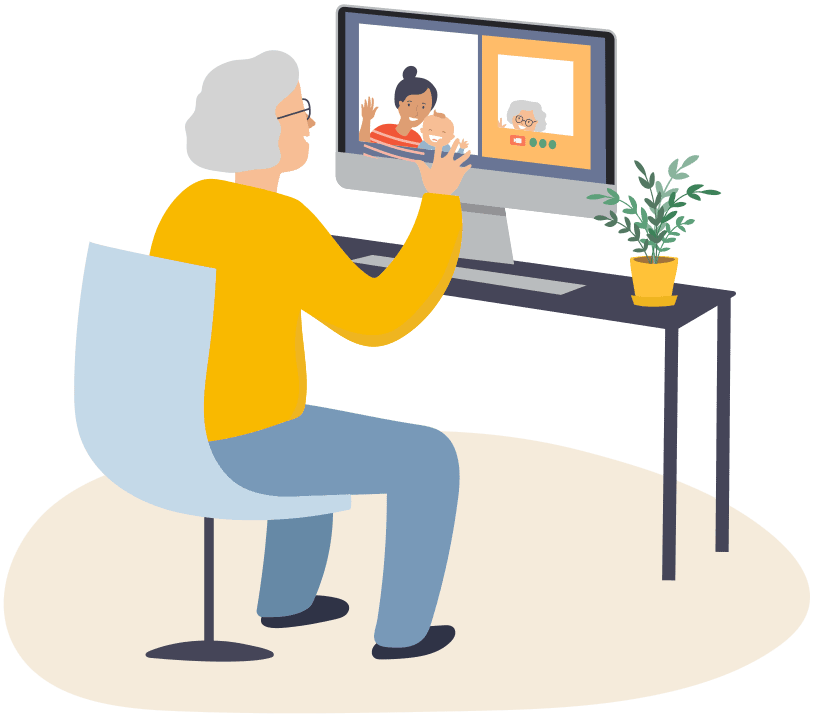The Ultimate Guide To Senior & Elder Care Planning
 By Stefanie Shumaker, M.Div.
By Stefanie Shumaker, M.Div.
Chapter 7: The Difference between Home Health care and Hospice care
Home Health care is exactly what it sounds like — medical care that is provided in a patient’s home. This might include skilled nursing care, physical therapy, occupational therapy or speech therapy. The goal of home health is for older adults to live independently for as long as possible, even with an illness or injury. If needed, members of a home health care team may assist a patient with bathing, dressing, eating or any other activities of daily living (ADLs).

Hospice care has a different focus. A hospice care team seeks to keep the patient as comfortable as possible, focusing on the quality of life for people and their caregivers who are experiencing an advanced, life-limiting illness. When curative treatment is no longer possible or a patient decides they no longer wish to pursue curative treatment, or when their condition is such that a doctor would not be surprised if the patient died within the next six months, a doctor may suggest hospice care. This doesn’t mean the patient will die in that time frame, but that it is a realistic possibility. At this stage, it is most important that a patient’s symptoms are managed and that he or she is comfortable.
Several questions often arise as I help families explore home health and hospice options:
1. Which is better, home health or hospice? Both are great options. Home health aims to assist a person in becoming more independent again, such as strengthening through physical therapy after a surgery or injury. Hospice aims to keep a person comfortable and help them find peace emotionally and spiritually as they decline physically and cognitively.
2. Can you have both home health and hospice? A person may transition from home health to hospice if no improvements can be made through therapy. Your care team will assess and guide you through this transition. Home health and hospice are separate care options and a person can only be on one of them at a time.
3. Who pays for home health or hospice care? Most of these services are covered by Medicare or a private health care insurance policy. A phone call with a home health or hospice company representative will answer any questions you may have about the two health care options and their fees.
4. What does a home health or hospice aide do? An aide will assist with eating, bathing, dressing, personal hygiene such as combing hair and brushing teeth, toilet hygiene.
5. What services does hospice provide in the home? A hospice team aims to keep a person comfortable and find peace or healing, and support their family, through this last stage of life. The team includes a nurse, an aide, a social worker, a chaplain and face-to- face visits from a hospice doctor as needed.



